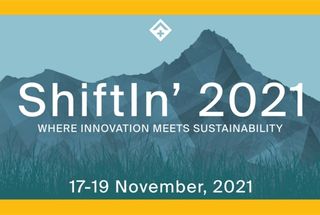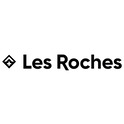Enough talk - Here’s how to make hospitality sustainable


If you’re in hospitality, the mention of sustainability should make you feel concerned and excited in equal measures. Concerned because hotels contribute 1% to global carbon emissions and tourism as a whole is responsible for 8%. Excited because there’s a lot of innovation happening to make that change happen. But what can your hospitality business do, or support, to reduce its carbon footprint? This question has been widely addressed by the different keynote speakers of the Shiftin’ festival 2021, organized online by the hospitality school Les Roches Global Hospitality Education, on the 17, 18 and 19 November.
First up, let’s stay positive here. Yes, we are at a crucial point in the future of the human race and the viability of this planet to support life as we know it. But, we still have opportunities to turn things around. Our businesses can reduce their carbon emissions and still deliver excellent service, be profitable and keep guests and shareholders happy.
“The bottom line, post-Glasgow, is we are not yet inevitably doomed to an inescapable future of escalating weather disasters and feedback loops”, says Co-Founder of the SUNx Program, SUNx Malta President and former UNWTO Assistant Secretary General, Professor Geoffrey Lipman. “But equally we have not really pulled back from the brink of a 2-3 degree warming by the end of the century”
“A pact between people and planet”
In his Keynote at ShiftIn’ Festival, Professor Lipman’s speech, Climate Friendly Travel - A Code Red Plan For Our Kids, discussed the action the hospitality industry needs to take to help deliver the Paris Agreement 1.5 degree target for 2050.
“We need regulation that incentivizes good practice and penalises bad, like the EU Fit for 55 program. We also need active carbon markets stimulating industry clean energy innovation, but we must factor in precautionary principles that are the bedrock of the protection of nature and planetary boundaries.”
How procurement can save the planet
Consumerism is often maligned as a key driver of increasing carbon emissions, but the way in which we buy things at a business level can actually help reduce global warming. Explaining how in a ShiftIn Festival Workshop, Laura Turley, Teaching Assistant and PhD Candidate, University of Geneva, shared her knowledge of sustainable procurement in the public sector, and the opportunities for the hospitality sector.
“Procurement as a powerful driver for change, whether that means integrating more criteria about environmentally friendly services, or implementing low carbon procurement requirements. Businesses can look further up supply chains to see where things are coming from, and, rather than just looking at cost, ask: does procuring this item or service engender greater carbon emissions?”
Mainstreaming sustainability is essential in hospitality
In the early days of Corporate Social Responsibility (CSR), many businesses greenwashed their core operations through small investments in sustainable side-projects. For Laura, the opposite of this ‘checklist’ approach is needed in hospitality, and she believes procurement offers a powerful way to achieve it.
“Mainstreaming sustainability means integrating it into core business, and procurement is a way to walk the talk. For example, Deutsch Hospitality has a clear social and environmental policy for all products and services they procure. And IHG’s Green Supplier Scorecard resulted in 23% of contracts awarded to sustainability-focused suppliers in 2020.”
Carbon is complex, but keep your solutions simple
It’s fair to say that climate change is one of, if not the, most complex challenges the human race has ever faced. With so many diverse countries, businesses, people and ambitions across the earth, aligning everyone’s attitude and actions is a tough ask. For Matthew Lambert, Managing Director of Summit and Director of Operations at International Hotel School, schools of Invictus Education, South Africa leading hospitality institution part of the Sommet Education network, along with Les Roches, overcoming this challenge is possible for hospitality businesses when they implement the KISS framework.
K - Keep it simple
“When you keep your problem or opportunity to four words, you become very specific to what you need to address and clear on what you need to achieve.”
I - Improvise
“When tackling a problem, you have to look at what exists out there, then run experiments and improvise to find a solution.”
S - Subtract
“As human beings, when we look to improve, innovate or make something better, our natural reaction is to add, versus subtract. You have to get back to the problem you need to address; subtract features and focus on the specific challenge you, or those you are looking to help, are facing."
S - Scale
“Scale is key for any initiative you introduce to support sustainability. Your innovation needs to have application to a broad audience, otherwise it effectively just turns into a gimmick”
As professionals within hospitality, we can all move the needle in the right direction, and as Professor Lipman, Laura and Matthew all endorse, we can do this through regulation, procurement and by keeping things simple.
